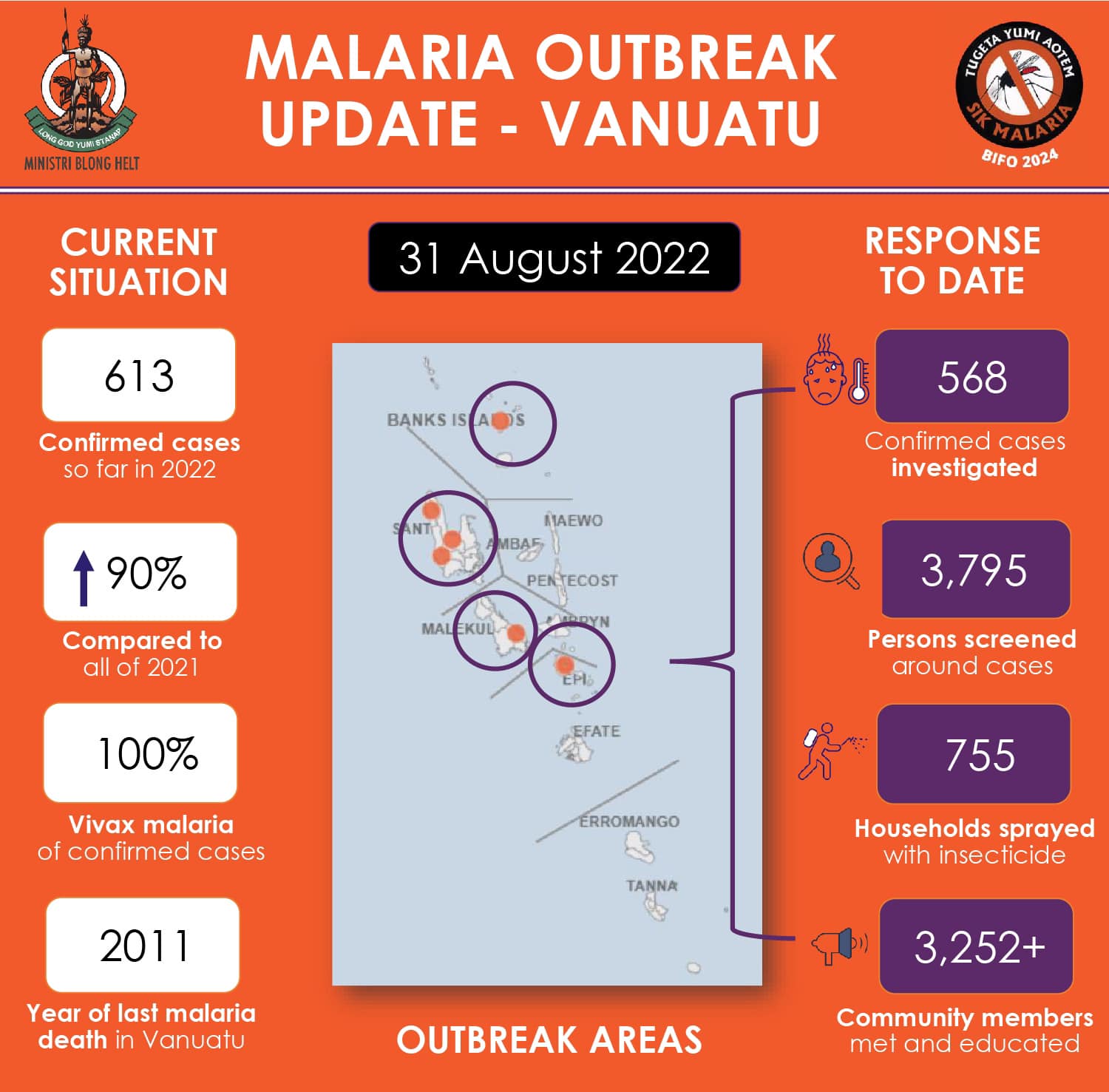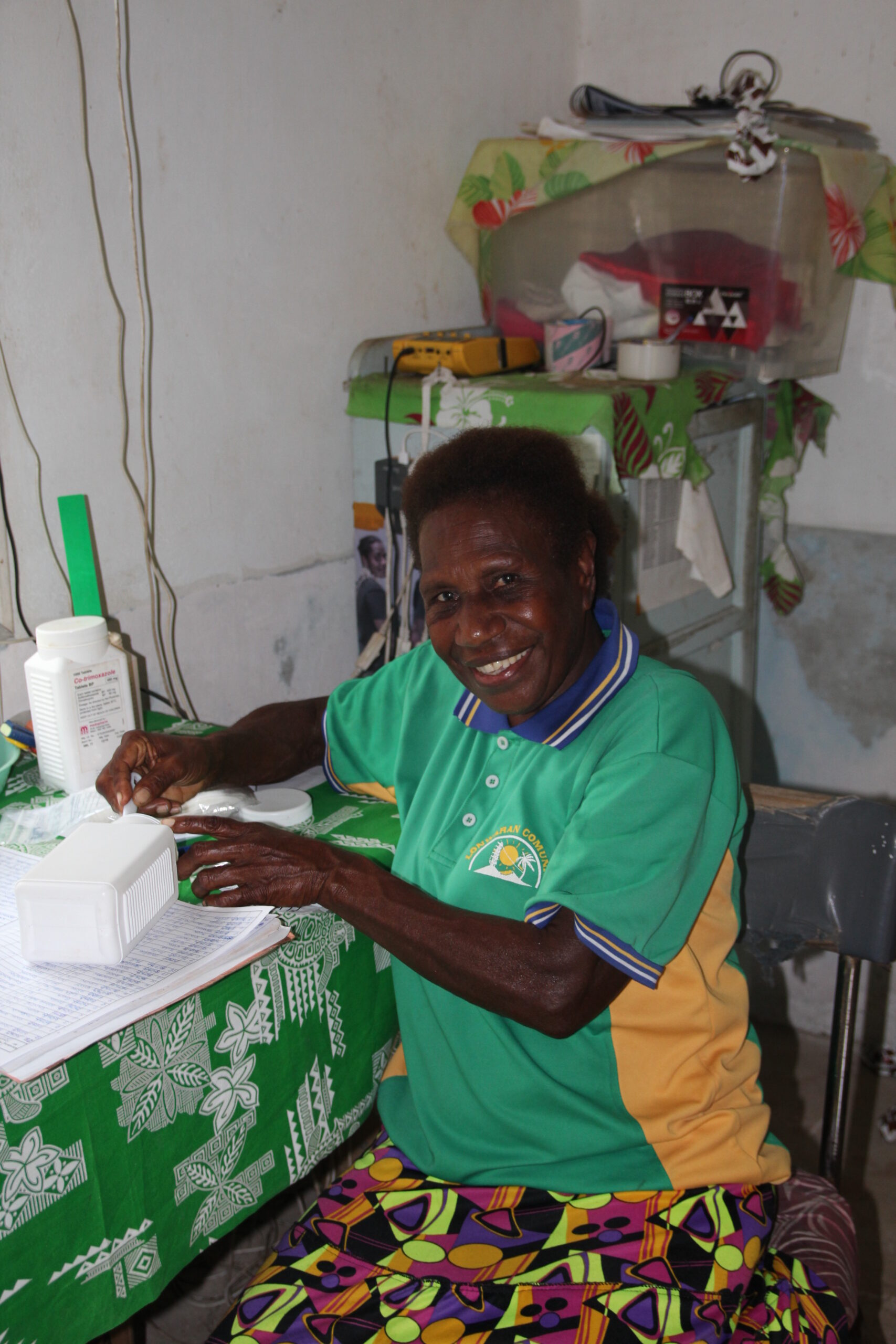Maradj egészséges Vanuatun!
Malária Vanuatuban
In the last 10-15 years the cases of malaria in Vanuatu decreased rapidly, but it is a still significant problem in some areas. There are islands where there were no cases reported for years, on others the last outbreak was in 2022. Whether it is recommended to take malaria pills or not, depends mainly on your travel plans and the areas you are planning to visit. In the following article, I´m giving you suggestions for all of the bigger islands and sharing some interesting facts about the topic.
Dengue and other mosquito born diseases
Recommended vaccinations
1. Routine vaccines
Make sure that you have coverage from routine vaccines (Diphtheria, Pertussis, Tetanus, Measles, Mumps, Rubella, Polio, Varicella)! The vaccination rates for routine vaccines are pretty low in Vanuatu (for Measles it is estimated that only around 50% of the kids get vaccinated, for Diphteria-Pertussis-Tetanus only around 62%) so as a result these diseases can occur with a much higher probability.
2. Hepatitis B
The Ministry of Health in Vanuatu estimates the prevalence of Hepatitis B infection to be as high as 15-25% in the country. That´s a lot! So get your vaccine!
3. Hepatitis A
The hygiene standards in Vanuatu are in many places not too high and the risk of Hepatitis A is significant, so vaccination is strongly recommended!
4. Typhoid
Typhoid fever appears again and again in Vanuatu, especially in periods after tropical cyclones. The risk is higher in rural areas where no adequate sanitation is available. Vaccination is recommended.
5. Rabies
Vanuatu is free of rabies in dogs and other domestic animals. At the same time, it cannot be excluded to have reservoirs of rabies in wild animals (especially in bats). A vaccination is only recommended if it is expected, that you will get in direct contact with wild animals
A nurse practitioner in a rural medical facility on Pentecost Island.
Yaws and other tropical ulcers
When traveling around Vanuatu, you will see again and again people, especially children and younger adults with chronic skin ulcers mainly on the feet and lower limbs. These ulcers can be caused by different bacteria, but two of these are especially important to mention.
The first one is a Treponema pallidum subspecies, which leads to a disease called yaws. Vanuatu is one of the very few countries, where yaws remain endemic. It leads to chronic ulcers on the skin, and if left untreated, it can affect the cartilage and bone and can lead to deformations. The second is Haemophilus ducreyi, which leads to similar skin lesions as yaws and you need laboratory tests to be able to differentiate. Both bacteria are known as sexually transmittable diseases in big parts of the world, but in Vanuatu and some other countries, especially in the Pacific region, their subspecies lead to chronic skin infection and are transmitted by simple skin contact with the bacteria, which can happen for example by traveling on public transport, staying in a homestay or wherever where your skin can be exposed to the bacteria. Is there anything you can do to prevent that? Not really, but the important is to recognize that you have a skin ulcer, to make laboratory tests in order to sort out which bacterium causes it and to start to take antibiotics in order to treat it.
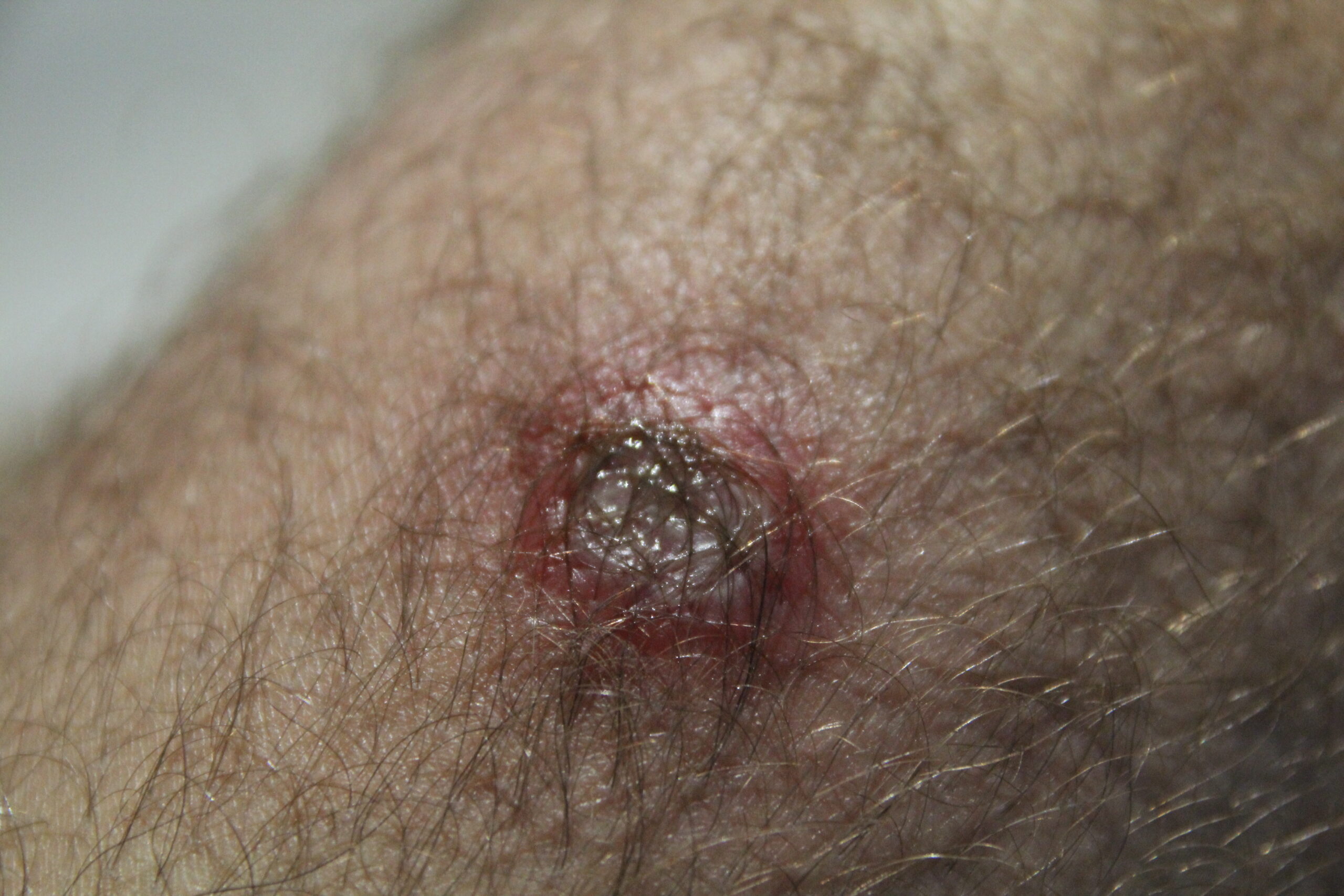
Tropical ulcer on a fellow traveller
Leptospirosis
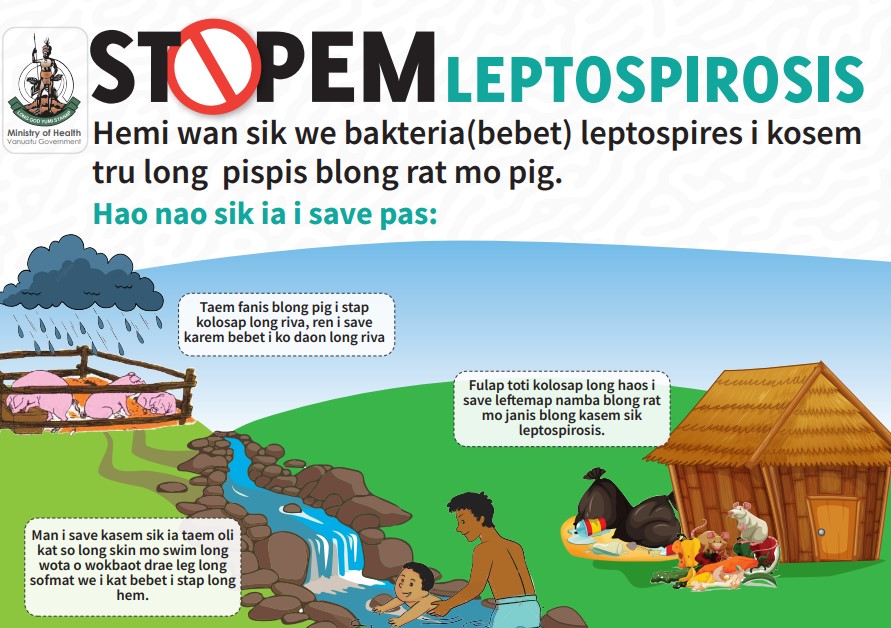
Campaign for Leptospirosis-awareness in Vanuatu
General hygienic and food-born illnesses
In touristy areas, most sanitary facilities are of good enough standards, but in rural areas, sanitation can be far away from anything adequate. If you visit more isolated parts of the country, you will often find toilets in very poor condition, no bathrooms, and sometimes no option for washing hands. If you plan to explore non-touristy areas, I strongly recommend carrying your own disinfectant lotion for the hands, toilet paper, and anything else you need.
On the other side, typical food you can find in rural areas (boiled taro, manioca, island cabbage, laplap) are cooked on the same day at high temperatures and consumed within a maximum of a couple of hours, so getting a stomach infection from these meals is pretty much improbable.
I got my worst stomach infection not in isolated villages or street food places, but in a 4-star hotel. Why? These hotels often prepare European-style recipes with runny eggs, French creams, and sauces which are often inadequate preparation methods for a tropical climate.
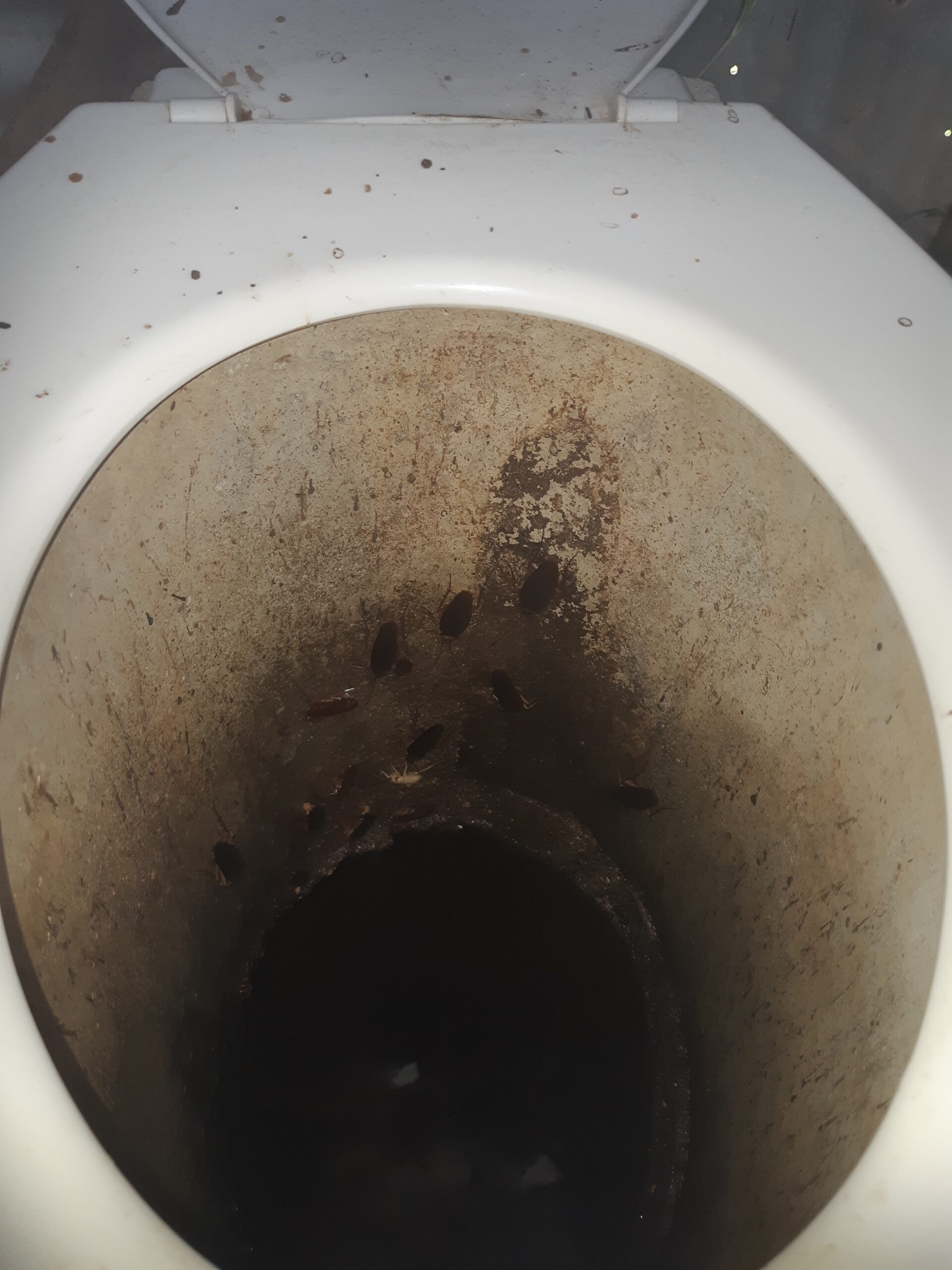
Toilet with cockroaches and all you can imagine on Pentecost Island
